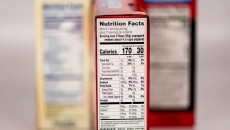Food manufacturers unprepared for FSMA data requirements, survey finds

The survey, conducted by physical commodities software firm iRely, shows that 76% of respondents did not plan to add more staff to meet the new requirements, and 45% of respondents said they were keeping records via spreadsheets or other manual processes to manage traceablility, quality and inventory.
On the survey, 71% of respondents said they thought FSMA would directly affect their operations. But when asked which regulation would affect them the most, the most common answer was “unsure” at 44%.
“That seems accurate to me. To my knowledge, many companies don’t understand what FSMA requires of them,” said Marc Ullman, an attorney with Ullman, Shapiro & Ullman who represents many food and dietary supplement manufacturers.
“There are companies that are not even aware that they have to re-register their facilities,” he told FoodNavigator-USA. “In the area of dietary supplements, I would suspect the vast majority of ingredient producers or suppliers just don’t have a grip on what they are required to do with the new HAACP regulations.”
Additional costs
FDA has estimated a $13,000 cost per facility to manufacturers to upgrade their operations to meet the HAACP (Hazard Analysis and Critical Control Points) guidelines laid out under FSMA. But in the survey, when asked if the FSMA regulations have affected their ability to plan/budget for 2013, 45% of respondents answered no, they have not addressed the FSMA guidelines.
“Where we have found companies to be noncompliant has been around the paperwork and not being able to access that,” said Sudhakar Kaup, chief technology officer of iRely.
“It’s the ready access of information and being able to prove that you have collated all of the data points,” he said.
Upgrades needed
Kaup said FDA expects under FSMA that many facilities will need record keeping upgrades to comply with the new regulation. But 76% of respondents in the survey said they planned no improvements, as they believed their data collection systems were already in compliance.
The answer to the additional staff question showed a similar disconnect, Kaup said. Under FSMA, he said, more frequent mock recalls are called for, and these eat up staff time. Yet the overwhelming majority of respondents seemed to believe they could handle this additional burden with their existing staff, he said.
Kaup said this disconnect means FDA has to do a better job of educating companies on the new requirements. And, he said, the agency could do a better job of estimating costs, too; the $13,000 figure per facility is off the mark no the low end, in his opinion.
IRely markets a variety of data upgrades to help companies manage quality and traceability, Kaup said. They include custom systems that would provide for real-time data collection at critical control points in the manufacturing and testing phases and offers the integrated use of hand held devices for the tracking of incoming ingredients.
“The focus is really to provide data capture points at the point where the data is generated,” he said.
Cost effective solution
Implementing one of these solutions is one way to go way past the $13,000 figure, Kaup admitted. But he said the benefits outweigh the costs, especially when possible FDA fines for problems found during inspections are figured in. And, he said, such a system is worth its weight in gold on the bad day when a manufacturer has to issue a recall.
“It’s a nightmare scenario when you have ingredients that go out into a variety of finished products,” Kaup said. “Most companies have broad based recalls, because they can’t track that.”
Such companies will often recall lots based on certain days of production. If they are not able to pinpoint which individual units are affected, they are forced to take a blanket approach just to be safe.
“Which is a bigger loss,” Kaup said.
















